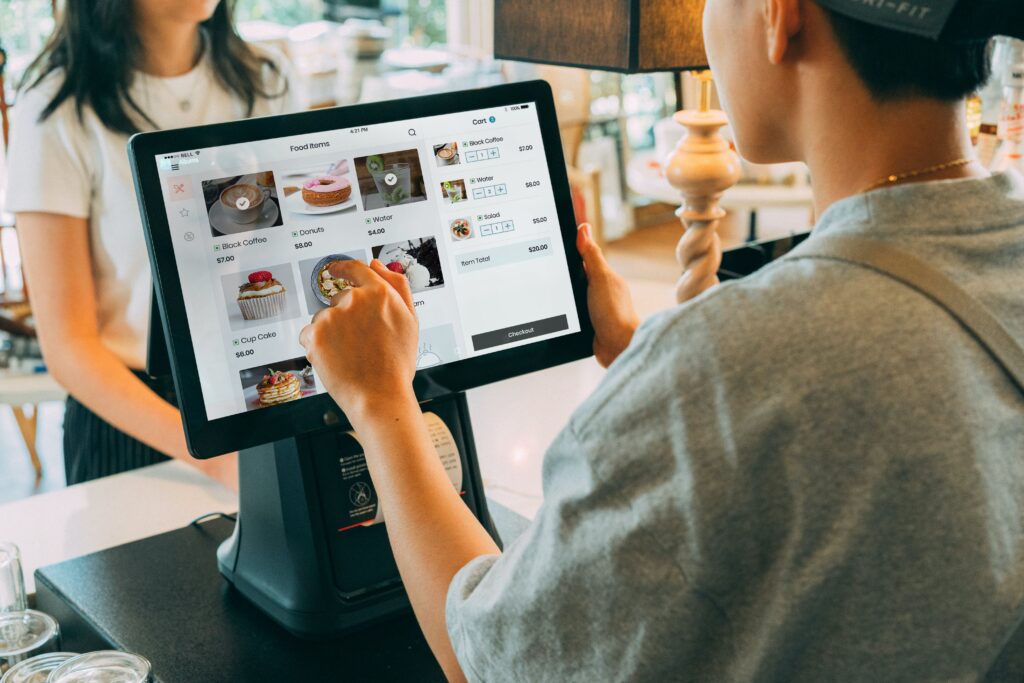In the fast-paced world of the restaurant industry, staying ahead of the curve is crucial for success. The integration of cutting-edge technologies has become a defining factor in creating a seamless dining experience for customers. From online ordering systems to artificial intelligence-driven innovations, the landscape of restaurant technologies is continually evolving.
Evolution of Restaurant Technologies
Looking back, the restaurant industry has witnessed a remarkable transformation thanks to technology. Gone are the days of handwritten orders and manual reservation books. The journey from cash registers to point-of-sale (POS) systems marks a pivotal moment in the quest for efficiency and enhanced customer service.
Current Trends in Restaurant Technologies
Today, the restaurant tech scene is buzzing with innovations designed to cater to the modern diner. Online ordering systems allow customers to browse menus, place orders, and even make payments from the comfort of their homes. Table reservation apps eliminate the hassle of waiting in long queues, providing a more organized and enjoyable dining experience. Contactless payment methods add an extra layer of convenience and safety.
Enhancing Customer Experience
The integration of technology isn’t just about streamlining operations; it’s also about creating memorable experiences for customers. Imagine receiving personalized recommendations based on your previous orders or interacting with a dynamic menu that showcases enticing images and detailed descriptions. These are the ways in which technology is enhancing the overall dining experience.
Efficiency in Operations
Behind the scenes, restaurant technologies are optimizing operations to ensure smooth day-to-day activities. Inventory management systems help in maintaining optimal stock levels, reducing waste, and minimizing losses. Staff scheduling software takes the guesswork out of creating rosters, ensuring that the right number of personnel is present during peak hours.
The Role of AI in Restaurants
Artificial intelligence is a game-changer in the restaurant industry. Predictive analytics assist in demand forecasting, allowing establishments to plan and prepare efficiently. AI-driven chatbots handle customer inquiries, reservations, and feedback, providing instant responses and improving overall service quality.
Data Security Concerns
While the benefits of restaurant technologies are evident, the issue of data security cannot be overlooked. With an increasing reliance on digital platforms, ensuring the confidentiality and integrity of customer data is paramount. Restaurants must invest in robust cybersecurity measures to build and maintain trust.
Adoption Challenges and Solutions
Despite the advantages, many restaurants face challenges when adopting new technologies. Staff training and the initial cost of implementation are common hurdles. However, with proper training programs and a focus on long-term benefits, these challenges can be overcome.
Case Studies
Real-world examples showcase the positive impact of embracing restaurant technologies. From small local eateries to global franchises, success stories abound. These cases demonstrate how staying tech-savvy can lead to increased efficiency, customer satisfaction, and profitability.
Future Predictions for Restaurant Technologies
The future of restaurant technologies holds exciting possibilities. Integrations with augmented reality could revolutionize the dining experience, providing interactive menus and immersive environments. Blockchain technology may play a role in enhancing supply chain transparency, assuring customers of the origins and quality of their meals.
Impact of COVID-19 on Restaurant Technologies
The global pandemic has accelerated the adoption of certain restaurant technologies. Contactless options, online ordering, and digital menus have become essential components in minimizing physical contact and ensuring public health safety.
Balancing Tradition and Technology
As the industry embraces technology, it’s crucial to strike a balance between tradition and innovation. Maintaining the authenticity of the dining experience while incorporating tech advancements ensures a harmonious blend that caters to diverse customer preferences.
The Green Revolution
In a world increasingly concerned about sustainability, restaurant technologies can contribute to the green movement. From energy-efficient appliances to waste reduction measures facilitated by smart systems, the industry has the potential to reduce its environmental footprint.
Emerging Technologies to Watch
As we look ahead, certain technologies show promise for reshaping the restaurant landscape. Augmented reality may not only enhance visual menus but also create immersive dining experiences. Blockchain’s potential for supply chain transparency can instill confidence in customers about the sourcing and quality of ingredients.
Conclusion
In conclusion, the role of restaurant technologies in shaping the industry cannot be overstated. From optimizing operations and enhancing customer experiences to addressing global challenges like the COVID-19 pandemic, technology is a driving force. As we navigate the dynamic landscape, it’s essential for restaurants to stay informed, adapt, and leverage the power of innovation for sustained success.

